Today is the day after Bloomsday, but I wanted to squeeze in a Bloomsday blog post anyway. (Technically,since the day described in the book ends after midnight, maybe June 17 could be grandfathered in a little?) This year we extended our Bloomsday festival into the historic house: facsimiles of passages from the manuscript were spread throughout the house, with each passage relating to objects in that space. Our inimitable librarian Elizabeth Fuller put together the passages and objects and I wanted to share a few of her wonderful pairings.
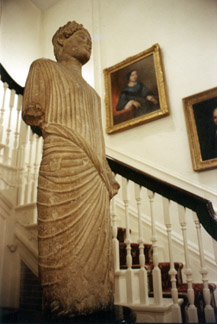
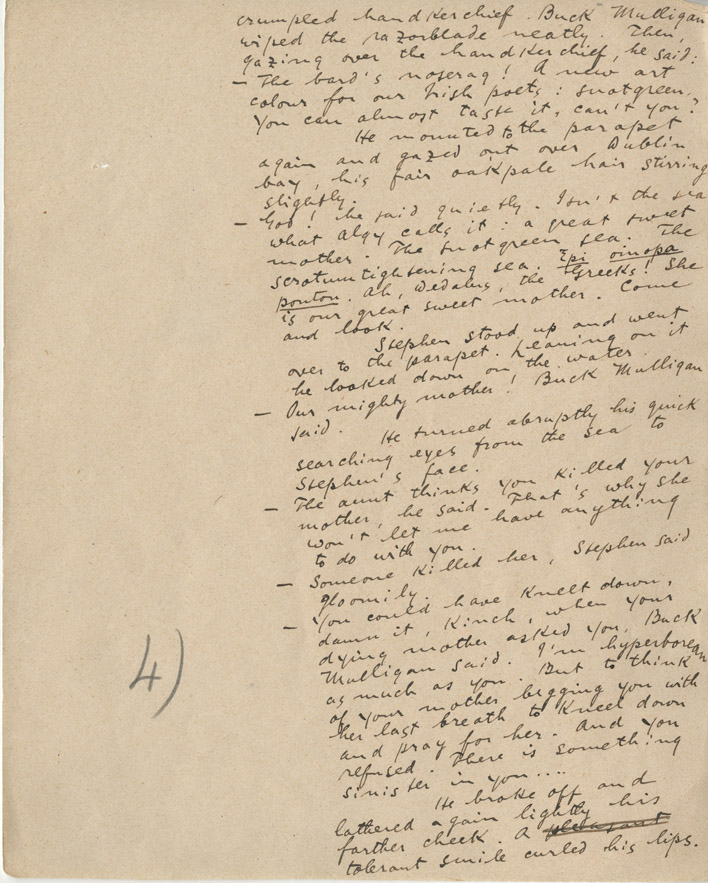
In “Telemachus” Buck Mulligan and Stephen Dedalus discuss the politics of literature. The statue comes from another Hellenized island, Cyprus.
Epi oinopa ponton. Ah, Dedalus, the Greeks. She is our great sweet mother. Come and look.
Stephen stood up and went over to the parapet. Leaning on it he looked down on the water.
— Our mighty mother! Buck Mulligan said.
…
Drawing back and pointing, Stephen said with bitterness :
— It is a symbol of Irish art. The cracked lookingglass of a servant.
Buck Mulligan suddenly linked his arm in Stephen’s and walked with him round the tower, his razor and mirror clacking in the pocket where he had thrust them.
— It’s not fair to tease you like that, Kinch, is it? he said kindly. God knows you have more spirit than any of them.
Parried again. He fears the lancet of my art as I fear that of his.
— The cracked lookingglass of a servant! Tell that to the oxy chap downstairs and touch him for a guinea. He’s stinking with money and thinks you’re not a gentleman. His old fellow made his tin by selling jalap to Zulus or some bloody swindle or other. God, Kinch, if you and I could only work together we might do something for the island. Hellenise it.
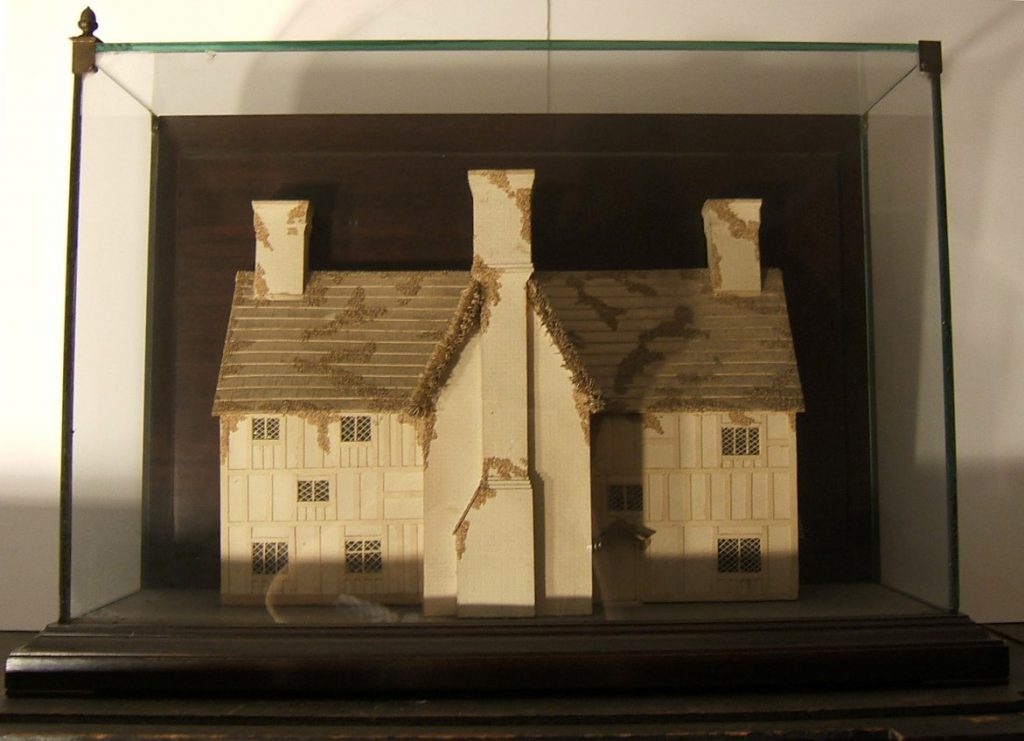
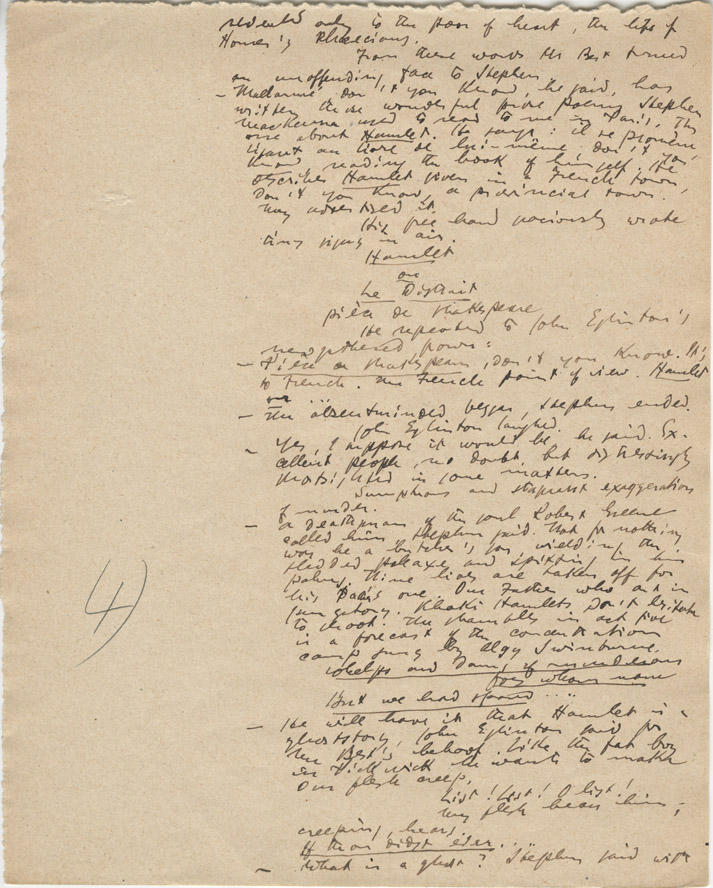
In “Scylla & Charybdis” Stephen introduces his theory that Shakespeare’s plays are autobiographical.
— He will have it that Hamlet is a ghoststory, John Eglinton said for Mr Best’s behoof. Like the fat boy in Pickwick he wants to make our flesh creep.
List! List! O list!
My flesh hears him ; creeping, hears.
If thou didst ever…
— What is a ghost? Stephen said with tingling energy. One who has faded into impalpability through death, through absence, through change of manners. Elizabethan London lay as far from Stratford as corrupt Paris lies from virgin Dublin. Who is the ghost, returning to the world that has forgotten him? Who is king Hamlet?
John Eglinton shifted his spare body, leaning back to judge.
Lifted.
— It is this hour of a June day, Stephen said, begging with a swift glance their hearing. The flag is up on the playhouse by the bankside. The bear Sackerson growls in the pit near it, Paris garden. Canvasclimbers who sailed with Drake chew their sausages among the groundlings.
Local colour. Work in all you know. Make them accomplices.
— Shakespeare has left the huguenot’s house in Silver street and walks by the swanmews along the riverbank. But he does not stay to feed the pen chivying her brood towards the rushes. The swan of Avon has other thoughts.
Composition of place. Ignatius Loyola, make haste to help me!
— The play begins. A player comes on under the shadow, clad in the castoff mail of a court buck, a wellset man with a bass voice. It is the ghost, King Hamlet, and the player is Shakespeare. He speaks the words to Burbage, the young player who stands before him, calling him by a name:
Hamlet, I am thy father’s spirit,
bidding him list. To a son he speaks, the son of his soul, the prince, young Hamlet and to the son of his body, Hamnet Shakespeare who has died in Stratford that his namesake may live for ever.
Is it possible that that player Shakespeare, a ghost by absence, and in the vesture of the elder Hamlet, a ghost by death, speaking his own words to his own son’s name (had Hamnet Shakespeare lived he would have been prince Hamlet’s twin) is it possible or probable I want to know, that he did not draw or foresee the logical conclusion of those premises? I am the murdered father : you are the dispossesed son : your mother is the guilty queen, Ann Shakespeare, born Hathaway?
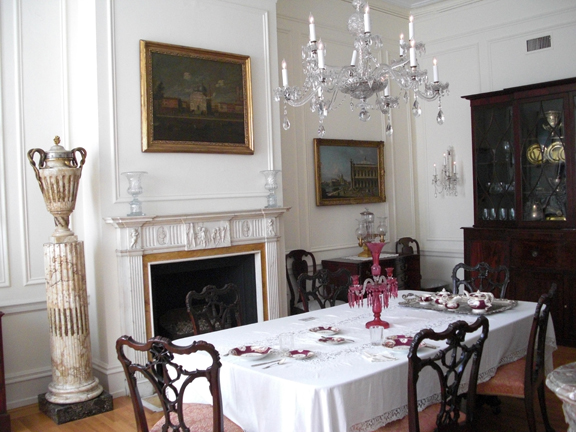
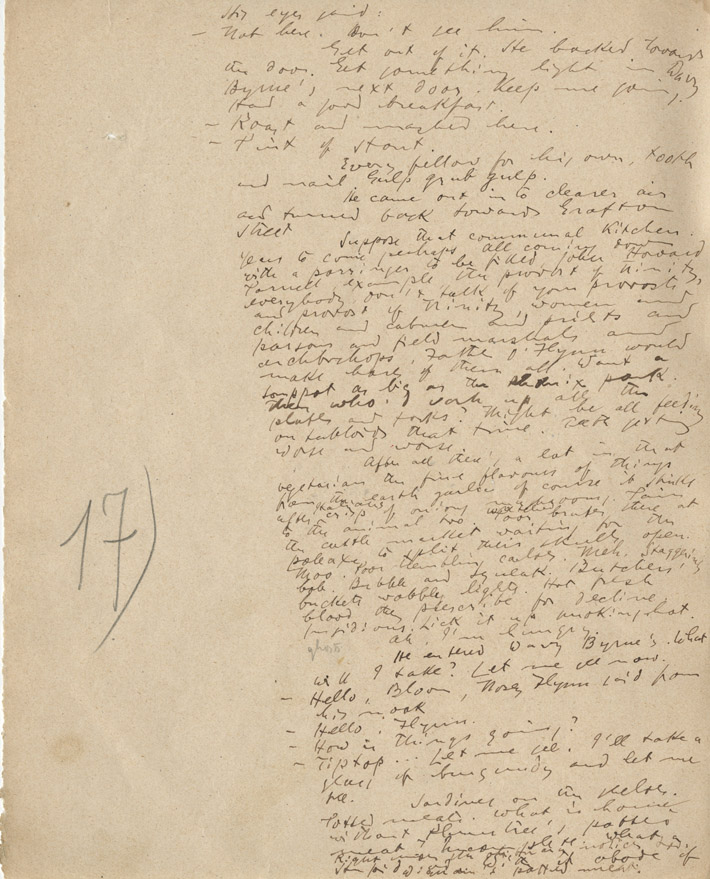
The first thing we learn about Bloom is what he likes to eat, though we soon learn that he has a wide range of interests and his thought processes make connections among them all. The entire “Lestrygonians” episode revolves around food. In the process of ordering a sandwich for lunch, Bloom thinks about advertising, his troubled marriage, dubious processed food, and his recently-buried (“potted”) acquaintance Paddy Dignam.
—… Let me see. I’ll take a glass of burgundy and let me see.
Sardines on the shelves. Potted meats. What is home without Plumtree’s potted meat? Incomplete. What a stupid ad! Under the obituary notices too. Dignam’s potted meat. … With it an abode of bliss. Lord knows what concoction.
— Have you a cheese sandwich?
— Yes, sir.
Like a few olives too if they had them. Good glass of burgundy take away that feeling.
— Wife well?
— Quite well, thanks … A cheese sandwich, then. Gorgonzola, have you?
— Yes, sir.
